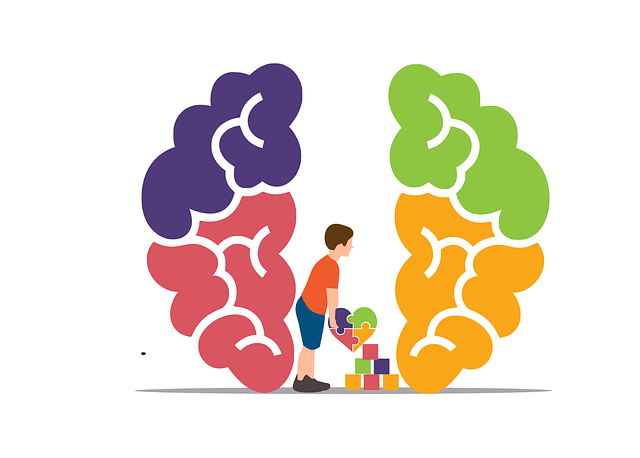Broomfield Couples Communication Issues Therapy leverages the RFM framework (Relationship Functioning, Marriage Satisfaction, Conflict) to assess and enhance interpersonal dynamics, fostering resilience by identifying vulnerabilities. Cultural competency training ensures inclusive practices. The therapy emphasizes resilience-building exercises, structured activities, and mental wellness coaching to strengthen emotional connections and open dialogue, addressing communication issues from differing perspectives and unmet needs. Conflict resolution techniques, self-care routines, and empathy building strategies improve couples' ability to navigate disagreements constructively, leading to stronger bonds and better mental health.
“Enhancing relationships and fostering resilience is now more crucial than ever. This article delves into an innovative approach, combining RFM (Relationship Functioning Model) with resilience-building exercises for couples facing communication challenges.
We explore how these techniques, specifically tailored for Broomfield couples’ therapy, can transform interactions by improving understanding and connection. Through structured practice, partners can navigate conflicts more effectively, leading to stronger bonds and improved overall well-being.”
- Understanding RFM and Its Role in Couples Therapy
- Implementing Resilience-Building Exercises for Effective Communication
- Overcoming Broomfield Couples' Communication Issues Through Structured Practice
Understanding RFM and Its Role in Couples Therapy

In Broomfield Couples Communication Issues Therapy, Understanding RFM (Relationship Functioning, Marriage Satisfaction, and Conflict) is paramount. This framework provides a structured approach to assessing and enhancing interpersonal dynamics, making it an invaluable tool for therapists navigating complex marital challenges. By focusing on these key dimensions, therapists can gain profound insights into the strengths and weaknesses of a couple’s relationship, enabling them to tailor interventions effectively.
RFM plays a pivotal role in fostering resilience by identifying areas where couples may be vulnerable to stress and conflict. Through comprehensive risk assessment, which includes considering factors like communication patterns, emotional intimacy, and shared values, mental health professionals can offer targeted strategies for stress management. This not only strengthens the couple’s bond but also equips them with skills to navigate future challenges, thereby enhancing overall well-being and relationship satisfaction. Healthcare provider cultural competency training can further enrich this process, ensuring inclusive and effective Broomfield couples communication issues therapy.
Implementing Resilience-Building Exercises for Effective Communication

Implementing Resilience-Building Exercises for Effective Communication is a cornerstone of addressing Broomfield Couples Communication Issues Therapy. These exercises are designed to strengthen emotional connections and foster open dialogue, essential components for navigating life’s challenges together. By integrating practices that promote positive thinking and mental wellness coaching programs development, couples can enhance their ability to manage conflicts constructively.
Resilience building involves learning to adapt and bounce back from difficult situations, which is crucial for maintaining a healthy relationship. Through structured activities and discussions guided by therapists, Broomfield Couples Communication Issues Therapy offers a safe space where partners can explore and express their feelings honestly. This not only improves communication but also deepens the understanding and empathy between them, ultimately contributing to stronger, more resilient bonds.
Overcoming Broomfield Couples' Communication Issues Through Structured Practice

In many relationships, effective communication is the cornerstone of a healthy partnership, yet Broomfield couples often struggle to find common ground in their discussions. These communication issues can stem from differing perspectives, unmet needs, or simply a lack of structured practice. To address these challenges, therapy can offer valuable tools such as conflict resolution techniques that teach couples how to navigate disagreements constructively. By learning and implementing these strategies, Broomfield couples can transform their interactions, fostering better understanding and stronger bonds.
One effective approach involves incorporating self-care routine development for better mental health. When individuals prioritize their well-being, they become more receptive to empathy building strategies, which are crucial for cultivating compassion and connection within the relationship. By encouraging open dialogue about each other’s needs and practicing active listening, couples can create a safe space where emotions are validated and miscommunications are resolved with care. This process not only enhances communication but also strengthens the couple’s resilience in navigating life’s challenges together.
The implementation of RFM and resilience-building exercises has proven to be a powerful tool in addressing and overcoming Broomfield couples’ communication issues. By fostering better understanding and improving emotional connections, these methods offer a structured path to enhanced therapy outcomes. This approach not only empowers couples to navigate challenges more effectively but also paves the way for long-lasting relationship growth and resilience.














